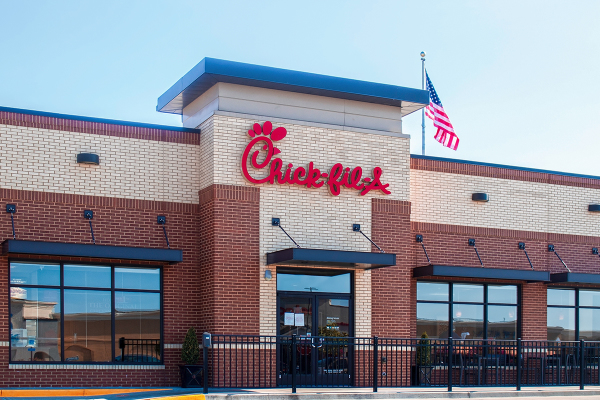Americans are unhappier now than they have been in 50 years, survey shows

Americans are more unhappy in 2020 than they have been in approximately 50 years amid the coronavirus pandemic, according to a new survey.
New data from the recently released COVID Response Tracking Study from the National Opinion Research Center at the University of Chicago suggests that only 14% of U.S. adults report being “very happy.” This represents a drop from 31% who said the same in 2018.
A total of 38% of survey respondents said they feel "depressed or very unhappy."
In the survey, 50% of Americans reported sometimes or often feeling isolated in the previous four weeks as many Americans have stayed home in recent months to follow local and state stay-at-home orders during the COVID-19 crisis. By comparison, only 23% said the same in 2018.
“The historical context reveals unique impacts of the outbreak on public sentiment: an all-time low in people saying they are very happy (14%) combined with an all-time high in people saying they are satisfied with their family’s financial situation (80%),” a NORC analysis of the data reads.
“These contrasting findings suggest that people are comparing their happiness to their own psychological well-being before the pandemic while assessing their finances in relation to the millions of fellow Americans who have lost jobs, wages, or investments following the outbreak.”
The study finds that “exposure to the coronavirus either personally or geographically in a highly-impacted area is linked with greater feelings of loneliness and other negative emotional states.”
The NORC poll surveyed 2,279 adults from May 21 to May 29 with funding from the National Science Foundation. The study uses a sample from NORC’s probability-based AmeriSpeak Panel, which is designed to be representative of the U.S. population.
The study was conducted online and over the phone in English and Spanish. The data has a 2.9-percentage-point margin of error.
The survey draws on over 50 years of data from NORC’s General Social Survey and compares “current beliefs to Americans’ responses to prior national tragedies.” NORC has collected data on American’s views and attitudes at least every other year since 1972.
According to the Associated Press, no fewer than 29% of Americans have ever labeled themselves as “very happy” in the GSS survey.
For the most recent survey, the majority of the research was complete before nationwide rioting and demonstrations broke out in response to the police killing of George Floyd in Minnesota. Floyd's death reinvigorated conversation about policing and systemic injustices that disproportionately impact racial minorities, particularly African-Americans.
Especially in light of the pandemic, the American public is now notably less optimistic about the standard of living for the upcoming generation than it has been in the past 25 years, the survey shows.
In 2018, 57% of people reported that conditions would improve for the next generation. But now, only 42% say the same, a record low. The question was first asked in 1994 when 45% of respondents said they expected the standard of living to get better, the previous low.
In comparison with other surveys that were done following the assassination of President John F. Kennedy in 1963 and after the 9/11 terrorist attacks in 2001, NORC suggests that Americans were not as likely to indicate that they are feeling some types of emotional or psychological stress reactions amid the pandemic.
A lower percentage of respondents reported smoking more than usual, crying or feeling dazed now than after the Kennedy murder and 9/11 attacks. Yet, more say they have lost their temper or have wanted to get drunk.
Approximately two times the number of Americans say they are as lonely today as were in 2018, a steep rise largely attributable to the pandemic.
Similar numbers have nearly doubled when it comes to "a lack of companionship" and feeling "left out" in the previous four weeks.
The research found that “Americans’ perceptions of their family’s income relative to others have also not changed significantly.”
“In the wake of the coronavirus, 42% describe their family’s income as average, and 24% report it is above average,” the NORC analysis states. “These assessments are similar to 2018, when 45% said their income was average and 23% say it was above average.”
According to AP, respondents’ satisfaction with their ability to persist financially in the latest wave of data was as high as it has been in the last half-century.
The COVID Tracking Study is ongoing. More data will be assembled in the coming months showing how the attitudes may change over time in response to the virus, the research organization noted.
In an April editorial, William Bowes, a mental health counselor in Boston who is a graduate of Gordon Conwell Theological Seminary, suggested that good news for people who are feeling lonely or unhappy during this time is found in Jesus Christ.
“And that isn’t a cliché answer. Jesus understands what it is to feel lonely, wants to meet you in your loneliness, and shape you through it. Jesus is a friend to the lonely, and always available for you to call on him," Bowes wrote. "Psalm 68:6 tells us that God 'sets the lonely in families.' His heart is not that you would have countless superficial connections, but that you would feel a sense of belonging. This is a great benefit of the church as the community of believers (whether they can gather or not).”





















